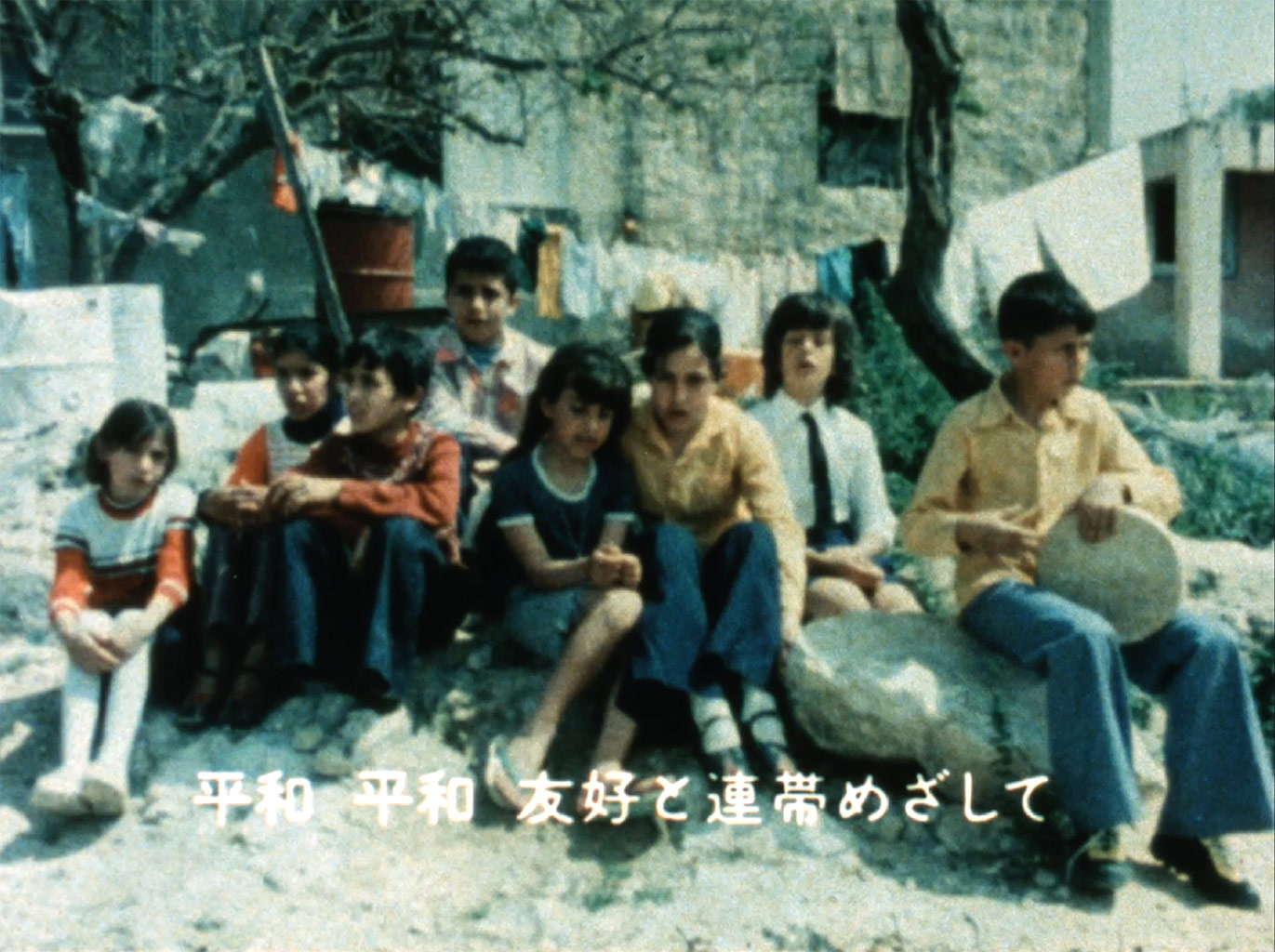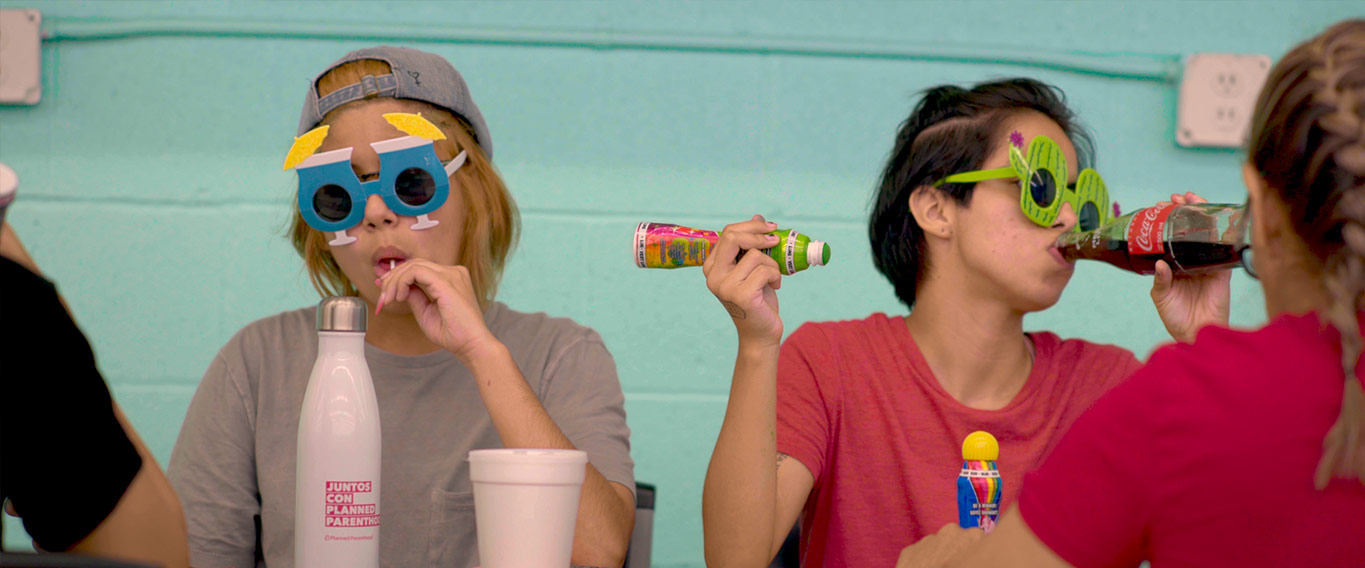
How to Have an American Baby
(Leslie Tai, USA, 2023)
How to Have an American Baby is a primer in much more than its name suggests. Director Leslie Tai’s 8.5-year undertaking simultaneously introduces, exposes, and empathizes with the complex world of Chinese birth tourism in the U.S.The film follows the stories of pregnant Chinese women who travel to Southern California to stay in “maternity hotels” until they give birth, so that their children will be American citizens. Beyond the stories of these women, the film traces the multitude of intersecting socioeconomic and geopolitical vectors that create such an industry.
Despite the culturally-specific context, the motivations and experiences of the film’s subjects are familiar and relatable. Like so many parents, the women are not so much seeking the American dream as they are pragmatically pursuing the best opportunities for their children. To do so, they must navigate the absurd financial demands and mundanely inhumane protocols of the American medical system.
By documenting the maternity hotel bosses, workers, and nearby NIMBYs, as well as the women and their families, Tai presents a robust world full of complicated relationship dynamics and economic pressure points. The one labor scene in the film feels high stakes not only because of the pregnant woman’s arduous ordeal, but because Tai is pulled out of the room in a crisis moment to translate for another woman whose newborn is fighting for his life. This woman becomes a character in the film, reflecting Tai’s openness to following the twists and turns of the story.
The emotional investment of the audience was palpable throughout the screening, with many sniffles, gasps and one collective guffaw in reaction to a high-tech mahjong table. Ultimately, through the interplay of each character’s story, the film underscores the uniting power of one of the most fundamental of human experiences: giving birth.

Last Things
(Deborah Stratman, USA, 2023)
Last Things by lauded experimental filmmaker Deborah Stratman compresses, as she remarked in the Q&A, “4.5 billion years in 50 minutes.” A hypnotic and visually variegated contemplation on the “prehistory of prehistory,” Last Things combines evolutionary geoscience and speculative texts with an entrancing array of film techniques to invoke the spirits of our oldest ancestors, like chondrites: super ancient meteorites.
The film operates on what Stratman described in the Q&A as “scales that are either much smaller or much bigger than we can actually sense,” and she employs an array of entrancing visual techniques to document the spreading formation of soy sauce crystals, extreme close ups of chondrite innards, and colorful superimpositions. Though I didn’t know what I was actually looking at half the time, the feeling-tones of the images invoked a somatic sense of the depth of spacetime beyond cognitive comprehension. At times, the geometric nature of the visuals were reminiscent of the hallucinations that can occur in hypnagogia — the liminal state experienced while falling asleep.
Two divergent but complementary narration lines interact as vocal neighbors throughout the film. Valérie Massadian reads in French from a range of speculative and existentialist texts by writers like Clarice Lispector and J.H. Rosny. Geoscientist Marcia Bjørnerud expertly distills the events of mind-boggling timescales into a digestible, compelling story about the astronomical and geological history of stones and minerals.
The last things in Last Things take more recognizably human shapes. A group of people stand in a beautiful field, each holding a mirror, reflecting the brilliant shine of the sun into the camera in a synchronized rhythm, while chill-inducingly beautiful choral music plays in the soundtrack. Stratman waits till the final scene to take us to an unedited human environment: a group of capoeira dancers performing on the street.

R21 AKA Restoring Solidarity
(Mohanad Yaqubi, Qatar, Occupied Palestinian Territory & Belgium, 2022)
R21 AKA Restoring Solidarity is a rare kind of film essay about the movement for Palestinian liberation struggle, drawn from 16mm propaganda films from the 1960s-80s which were maintained by Japanese activists. Feeling a strong sense of solidarity with the Palestinian fight for freedom against an imperialist oppressor, the Japanese group preserved and presented these films to raise awareness about the Palestinian struggle in Japan. A multi-layered exercise in cultural reflexivity, R21 is a film that questions the function of the archive, displays a solidarity gesture from one social struggle to another thousands of miles away, and presents a revolutionary film archive in dialogue with itself.
Director Mohanad Yaqubi took on the archive and sculpted R21 from twenty of these archival films. The archive is presented with loving attention to detail, including the preservation of music tracks in all their warped fuzzy glory. The only contemporary footage details the archival process, through close ups of film cans being opened, reels delicately removed, and the digitized files interfaced with in transfer and edit software.
In one striking propaganda film, a group of Palestinian boys play outside, far from town. One boy finds a discarded piece of artillery. When another boy eyes it covetously, a chase ensues. Cleverly cutting in footage of Israeli tanks rolling in, the story climaxes with death, spurring the surviving youth to take up arms. In a flash, petty child’s play is replaced with revolutionary battle cries.
Ultimately, the incredible specificity of the film’s context implicates the audience with a series of probing questions: what is my role and responsibility to global awareness? Whose seemingly disparate story is in fact connected to my own? How can I raise consciousness in my community about these connections? As the programmer introducing the screening remarked, what does it mean to make a film about a solidarity movement as it’s still in process?

Hummingbirds
(Silvia Del Carmen Castaños & Estefanía “Beba” Contreras, USA, 2023)
“What’s your favorite film so far?” is a common conversation starter at film festivals. Hummingbirds was the answer I heard most often at True/False, frequently followed by, “it really feels like you’re hanging out with them.”
Directors Silvia Del Carmen Castaños and Estefanía “Beba” Contreras’ — in close collaboration with Producer and Cinematographer Miguel Drake-McLaughlin, along with many first-time filmmakers working with mentor-collaborators — extend us an affable invitation to their daily lives in the bordertown of Laredo, Texas. On the surface, the film follows the directors’ surface activities: fiddling around on a synthesizer, buying snow cones on the street, marveling at the discovery that Wal-Mart accepts pesos, breaking into empty buildings, warding off cat-callers, and generally goofing around. But such moments sit seamlessly alongside Beba’s nerve-wracking experience waiting on hold with an immigration agency, waiting for a status update on their case. We witness Silvia and Beba grappling with their sense of responsibility to the community, wondering about their futures, engaging in immigration rights activism, worrying about their parents’ financial struggles, and recounting the story of crossing the border as a babe in arms.
One night, they team up with a bestie to commit “a little-itty-bitty crime” against a neighbor’s pro-life yard sign. The stylized sequence follows the crew as they gear up in fiercely assertive abortion rights drag and then power dance down the street (in slow-mo, of course) toward the scene of the crime. At one point they joke, “The suspects are two small males and one very tall female.” The act of vandalism itself is creative rather than destructive, as they simply adjust the wording of the sign to make it pro-choice. It’s an inspiring example of Gen Z activism that centers humor while taking social justice seriously. They prove that it’s possible to laugh at yourself while standing up for what you believe in–possible to banter about gender norms even as you defiantly fuck them. At the conclusion of the scene, the entire audience erupted in applause.
The stories of their traumas similarly come up organically, even lightly, as they swap stories of being deported, or a parent having to pawn an iPad from school for money to feed the family. These experiences are embraced simply as reality, without any intellectualizing or disassociated analysis. Mexico is another recurring character: as a ghost of the past and an idea about the future. They hang out at the border river, hollering at the little kids on the other side, pontificating about the shared air (“someone’s Mexican fart”), and yearning for the ability to move freely from one side to the other.
Drake-McLaughlin’s camera is appropriately up close and personal, circling their heads bent together, their bodies entangled in supportive embrace, and framing their faces against many a beautiful Laredo sunset. Just before their True/False premiere, the team won the “Generations” section at Berlinale. True/False gave them a standing ovation, when Beba appeared in-person and Silvia via Zoom.

Time Bomb Y2K
(Brian Becker & Marley Mcdonald, USA, 2023)
One of the most buzzed-about films at the festival, Time Bomb Y2K tells the tale of the 2000 millennium bug: the global late 1990s phenomenon marked by widespread uncertainty about whether computers would cross over from the year 1999 to 2000 without going haywire.
Co-directors Marley McDonald and Brian Becker employ an entirely archival approach to recounting the once-in-a-millennia story. As editors, McDonald and Maya Mumma painstakingly stitched together hundreds of sources, including news reports, White House press briefings, and New Year’s Eve home videos — as well as footage of middle America preppers, Y2K personalities, the etymological history of the term “computer bug,” and endless lines of code flashing across computer screens, tended to by bespectacled programmers.
Moving at a fast clip, it’s an unabashedly fun ride — as much a mirror of our current cultural nostalgia for the 90s/aughts as it is a thorough historical account. The sense of collective memory and therefore common bond felt palpable at the world premiere on March 2nd, as nearly every audience member could recall lived experience of the film’s topic. It felt cathartic to collectively process the past, even while the clear parallels to today’s technologically fraught public sphere beg further contemplation and action.
In the Q&A, the directors shared how they drew upon Becker’s experience as an archival producer, and informed their storytelling strategy by reaching out to dozens of the film’s subjects. In fact, “Farmer Jane,” one of the preppers featured in the film, lives in Missouri and made the trek to the fest for the second screening.

Shorts: Serotonin
The common theme in the True/False experimental shorts program, “Serotonin,” was the effects of the depletion of said neurotransmitter, which is vital for maintaining a positive mood and facilitating communication between the brain and the rest of the nervous system.
The block opened with attending filmmaker Zach Dorn’s Moomin (2022), composed entirely of content pulled from his iPhone photos, apps, and screen captures. Dorn’s deftly dry voice offers narration and recounts a long-distance relationship torn asunder by the pandemic — and his subsequent loneliness-spurred obsession with an app game. In the game, called Clawee, you play IRL claw machine games from your phone, and any winnings are mailed to your house. Dorn sets out to turn an inside joke with his ex into a grand romantic gesture staged inside the claw machine. Lucky for us, he documented the whole thing, because the resulting film is a hilarious, and touching example of pandemic hobbying.
In Barbara Vojtašáková’s No Elements (Prázdna množina, 2022), a former couple review 16mm footage they shot while together, their voice-over exchanges rich with the complexity and tension of their history and ongoing dynamic. Following Moomin, it felt kind of like if Dorn had showed his film to his ex and then they made a meta-film about the end of the relationship. But in an experimental Czech documentary kind of way.
The only other filmmaker in attendance for the program was Nastia Korkia, whose film You Are Not Here (2023) closed out the program. In it, she documents her grandmother’s austere funeral rites in a Russian Orthodox church. In the Q&A, both Dorn and Korkia spoke about how they use filmmaking as therapy, though Korkia joked that therapy might be easier.
Ω






